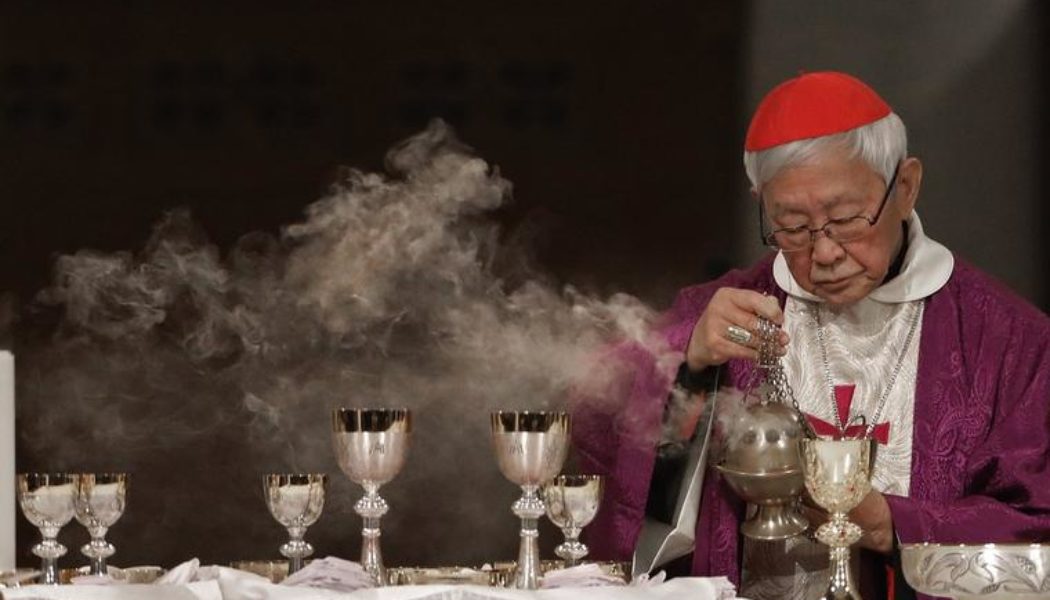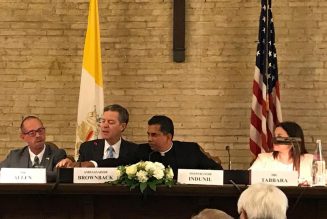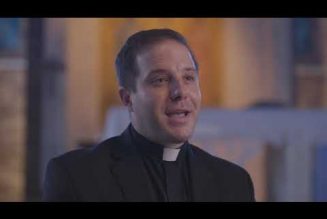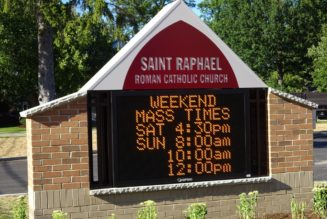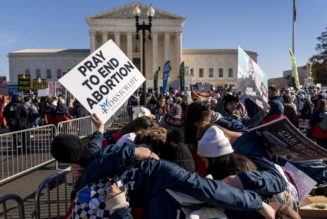
VATICAN CITY — Cardinal Joseph Zen Ze-kiun has criticized some of Pope Francis’ responses to five dubia that he and four other cardinals sent him ahead of the Synod on Synodality, saying among other criticisms that the Pope’s guidance on the blessing of same-sex unions is “pastorally untenable.”
In an Oct. 12 statement posted on his website, the bishop emeritus of Hong Kong, who signed the dubia sent to the Pope on July 11, said the Pope’s responses, which were sent a day later and which the Vatican made public on Oct. 2, “were not precise responses and did not resolve the doubts,” prompting him to issue a statement of his own “so that the faithful understand why the five of us did not find them adequate as answers.”
In Paragraph (g) of the Pope’s response to the second dubium, which asked whether same-sex blessings could ever be allowed “without betraying revealed doctrine,” Francis said, “canon law should not and cannot cover everything” and that “practical discernment” would be necessary “in particular circumstances.”
Such a response, Cardinal Zen said in his statement, was “pastorally untenable,” adding, “How can the Church, in such an important matter, leave the people without a clear rule and trust individual discernment? Isn’t this how a chaos of casuistry very dangerous for souls will break out?”
In his statement, he also questioned other parts of the response on same-sex blessings, saying the cardinals were “astonished” by the Pope quoting from his post-synodal apostolic exhortation Amoris Laetitia (The Joy of Love) to assert that a same-sex union is akin to marriage between a man and a woman only “in a partial and analogous way.”
“Equally difficult,” Cardinal Zen said, was where that paragraph “allows certain forms of blessing of homosexual unions,” to which he asked: “Doesn’t such a union imply sexual activity between people of the same sex, which is clearly sinful, just as any sexual activity outside of legitimate marriage is sinful?”
He criticized other aspects of the Pope’s response to this dubium, such as elevating the importance of “tenderness” to homosexuals in a same-sex union while relegating objective truth to being “only” one expression of charity towards them.
“In fact, we are convinced that with understanding and tenderness we must also present to them the objective truth that homosexual activity is a sin, that it is contrary to God’s plan of love,” Cardinal Zen observed. “We must also encourage them to a metanoia in the Church and trust in the help of God to carry their heavy cross on the path to eternal happiness.”
The Pope’s response to this dubium was read by media across the world as an indicator of his openness to accepting same-sex blessings.
Cardinal Zen joined Cardinals Walter Brandmüller, Raymond Burke, Juan Sandoval Íñiguez and Robert Sarah in sending the dubia as a means of obtaining clarity on topics relating to doctrinal development, the blessing of same-sex unions, the authority of the Synod on Synodality, women’s ordination, and sacramental absolution.
The five cardinals all found the Pope’s responses to be unclear and imprecise, and so they issued reformulated dubia on Aug. 21 aimed at eliciting clear “Yes” and “No” answers.
The Pope has yet to respond to those questions.
The cardinal said that due to “the time pressure,” he did not consult the other four cardinals about his Oct. 12 response, adding that he was therefore solely “personally responsible for this initiative.”
Okay to Question the Pope
Cardinal Zen began his statement by stressing that it was not “presumptuous” to question the Pope’s response, adding that “no mature Catholic” believes that to contradict the Holy Father makes him a “heretic and schismatic” — an accusation, he pointed out, that came from Cardinal Víctor Manuel Fernández, prefect of the Dicastery for the Doctrine of the Faith.
He said that, in any case, he agreed with the Pope “on much of what he says” and described Pope Francis as “wonderfully humble” in recognizing his own errors and those of Church leaders of the past.
Regarding the first dubium — whether divine Revelation should be reinterpreted according to the times — he said he agreed with most of the Pope’s response. The Pope answered that divine Revelation is “immutable and always binding” but also matures, with some aspects becoming more explicit. This was acceptable, Cardinal Zen said, “but not to the point of denying what was stated before by the Magisterium,” and he drew attention to St. John Henry Newman’s writings on development of doctrine.
Cardinal Zen questioned the Pope’s example of how the Church’s teaching on slavery had changed, his assertion that the Church must constantly discern what is essential or secondary for salvation, and what he says in his response about “situating” truths within the “totality of the Church’s teaching.”
St. Paul, Cardinal Zen said, “called into question the very institution of slavery”; salvation should be taken as a whole, with a hierarchy of values, but “in a harmonious whole” and not pitted “one against the other;” and the Church has a “duty to defend the simple faithful from risks that can threaten the purity of faith.”
Regarding the Pope’s response to the third dubium, whether synodality is a “constitutive element of the Church,” Cardinal Zen said the dubium was written because the synod seems to want to resolve issues like an ecumenical council, “which would be wrong.” He said the cardinals “agree on the principle of synodality” simply as “speaking and walking together,” but he took issue with the Pope’s response that suggests the hierarchy must not only “hear” but “listen” — “i.e., obey the voice of the people” — something that points to “overturning the hierarchical constitution of the Church founded by the apostles.”
Turning to the Pope’s response to the fourth dubium, which asked whether the theology of the Church has changed to allow ordination of women as priests, Cardinal Zen took issue with the Pope’s seemingly contradictory reply.
On the one hand, he noted that that the Pope recognizes that the ordination of men is a “definitive, clear and authoritative statement which must be respected by all” but also says that it “can be a subject of study, as in the case of the validity of ordinations in the Anglican Communion.”
Cardinal Zen asked, “So, despite the definitive declaration, it will still be possible to discuss ad infinitum?!” He added: “Among other things, the comparison used here is not adequate, because the validity of ordinations in the Anglican Community [sic] is a historical problem, while our case is of a theological nature.”
Lastly, regarding the fifth dubium, which asked if “forgiveness is a human right,” given that the Pope insists on the duty to absolve everyone and always, so that repentance would not be a necessary condition for sacramental absolution, the Pope responded that repentance is necessary for absolution but stressed that the confessional “is not a customs house.” The Pope also said confessing sins can be a “cruel torture” for some people with “wounded self-esteem” and so just approaching confession can be a “symbolic expression of repentance and seeking divine help.”
Cardinal Zen said “precisely because we are administrators and not masters of the sacraments, we must follow the rules, ensure repentance and resolution. Why, by doing this, should we be turning confession into ‘a customs office’?!”
On the second point, Cardinal Zen said a confessor “must not humiliate the penitent,” and the penitent must express his intention of not sinning again.
“But it is important to make people understand that sin distances us from God and from our happiness, not only eternal happiness, but also happiness here and now,” the cardinal said. “We, too, are convinced that we must learn to truly become messengers of God’s infinite mercy, which is capable of making saints even of us sinners.”
Cardinal Sandoval
Another of the five signatories, Cardinal Sandoval, archbishop emeritus of Guadalajara, Mexico, has also recently spoken publicly about the dubia, telling ACI Prensa, the Register’s Spanish-language news partner, Oct. 6 that the cardinals issued the dubia because they wanted to “collaborate in preserving the truth” and so that those who went to “the synod with goodwill have a simple guide.”
Cardinal Sandoval added, “We, the dubia cardinals, think this: that we have an obligation as cardinals, collaborators of the Pope, advisers of the Pope, to advise in this case.”
He pointed out that the Pope’s responses to the dubia were “a little evasive, a little vague,” so “they were reformulated in a clearer, more forceful way, so that he could answer Yes or No, and he did not answer. So we agreed to publish them.”
The dubia were submitted “for the sake of the truth and for the good of the Church,” he said, “without denying that he is the Pope, who has authority in the Church.”
